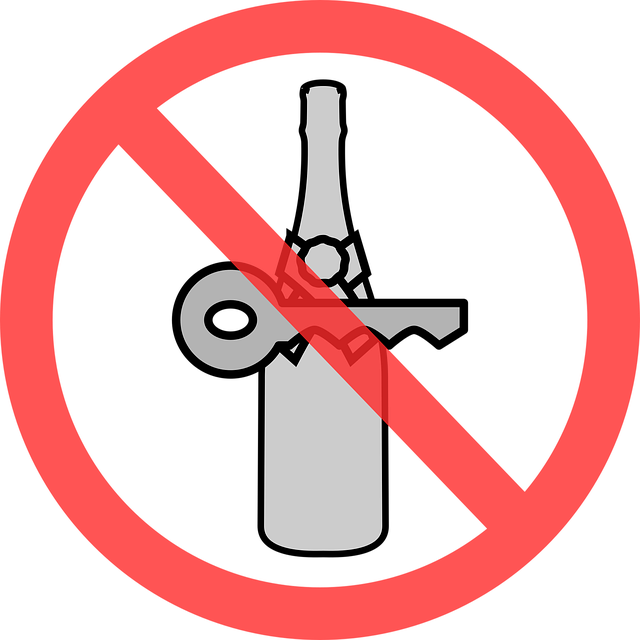Global perspectives on impaired driving reveal diverse approaches, from strict zero-tolerance to educational rehabilitation. These differences underscore the critical need for accessible and affordable DUI legal services worldwide, ensuring fair representation. Community involvement through public awareness, education in schools, and strict enforcement is vital. By learning from successful strategies globally, communities can tailor solutions to enhance road safety. Innovations like data analytics and AI are combined with improved access to affordable legal aid to tackle impaired driving effectively.
“Global Perspectives on Impaired Driving: Navigating a Complex Landscape
The issue of impaired driving transcends borders, yet cultural variations in enforcement and legalities create unique challenges. This article explores diverse global perspectives, delving into the impact of cultural differences on DUI laws and their implications. We uncover strategies for accessing affordable DUI legal services internationally and provide insights on navigating cross-border issues. Through case studies, we highlight successful international DUI enforcement efforts, while also forecasting future trends in global impaired driving prevention.”
- Understanding Global Perspectives on Impaired Driving
- The Impact of Cultural Differences in DUI Laws
- Affordable DUI Legal Services: A Global Perspective
- Navigating Cross-Border DUI Issues
- Case Studies: International DUI Enforcement Successes
- Future Trends: Global Efforts Against Impaired Driving
Understanding Global Perspectives on Impaired Driving

Understanding global perspectives on impaired driving is crucial in navigating this complex issue. Different countries have varying approaches and laws regarding drunk or drugged driving, reflecting cultural norms and historical contexts. For instance, while many nations strictly enforce zero-tolerance policies with severe penalties, others take a more nuanced view, focusing on public education and rehabilitation. This diversity highlights the need for affordable DUI legal services to be accessible globally, ensuring that individuals facing impaired driving charges receive adequate representation and support regardless of their location.
Global perspectives also reveal the importance of community involvement in prevention efforts. Some countries have successfully reduced impaired driving through public awareness campaigns, strict enforcement, and educational programs integrated into school curricula. By learning from these diverse strategies, global communities can collaborate to develop comprehensive solutions tailored to local needs, ultimately contributing to safer roads worldwide.
The Impact of Cultural Differences in DUI Laws

Cultural differences play a significant role in shaping global perspectives on impaired driving, leading to varying legal frameworks and public perceptions. Each country’s history, values, and social norms influence how it addresses drunk or drugged driving. For instance, some nations have traditionally taken a harsher approach, implementing strict zero-tolerance policies with stringent penalties, while others may opt for more educational and rehabilitative measures.
These disparities are reflected in diverse DUI laws worldwide. The availability of affordable DUI legal services also varies across cultures. In some jurisdictions, individuals face severe consequences, including hefty fines, lengthy licenses suspensions, or even imprisonment, emphasizing the importance of deterrence. Conversely, other regions might focus on alternatives like community service, counseling, or cultural-specific education programs to address impaired driving without always relying on criminal penalties.
Affordable DUI Legal Services: A Global Perspective

In many countries, access to affordable DUI legal services remains a significant challenge for individuals facing impaired driving charges. The cost of legal representation can be prohibitive, especially in regions with limited legal aid options or where legal fees are not capped by government regulations. This barrier can have severe consequences, as it may prevent accused individuals from mounting a robust defense, potentially leading to harsher sentences and longer license suspensions.
Globally, efforts to make DUI legal services more accessible are gaining traction. Some countries have implemented innovative programs offering free or low-cost representation for those who cannot afford private lawyers. These initiatives often involve law schools, non-profit organizations, and government agencies collaborating to provide pro bono services. By addressing the affordability issue, these global perspectives aim to ensure fairer treatment for all individuals accused of impaired driving, regardless of their financial means.
Navigating Cross-Border DUI Issues

Navigating cross-border DUI issues can be a complex challenge for individuals caught driving under the influence in different countries. With varying laws and regulations, understanding the legal implications is essential for anyone planning to travel internationally. When faced with such situations, seeking affordable DUI legal services becomes crucial. Professional legal aid ensures individuals receive accurate guidance tailored to the specific jurisdiction they’re in.
This is especially important when dealing with international borders, where local laws may differ significantly from one country to another. Affordable DUI legal services help navigate these differences, ensuring a fair and just outcome for those accused. By providing expertise in cross-border DUI cases, these services facilitate understanding of rights, potential penalties, and available defenses, ultimately empowering individuals to make informed decisions in unfamiliar legal territories.
Case Studies: International DUI Enforcement Successes

In addressing global perspectives on impaired driving, it’s imperative to look at international case studies that highlight successful DUI enforcement strategies. Countries like Sweden and Norway have implemented stringent laws and robust public awareness campaigns, leading to significantly reduced drunk driving incidents. These nations prioritize education, strict penalties, and community involvement to foster a culture of responsible drinking. For instance, Sweden’s “Vision Zero” initiative aims to eliminate traffic fatalities, including those caused by impaired driving, through innovative policies and enforcement tactics.
Additionally, the United States has seen notable success in certain regions where affordable DUI legal services are accessible. Programs that offer financial aid or pro bono representation have improved outcomes for both defendants and public safety. These initiatives ensure that individuals accused of DUI can mount a robust defense while also promoting accountability. By examining these global examples, policymakers and community leaders can adapt effective strategies to combat impaired driving more effectively on a worldwide scale, ultimately saving lives and creating safer communities.
Future Trends: Global Efforts Against Impaired Driving

In the global push against impaired driving, future trends are poised to transform how communities address this pervasive issue. International organizations and local governments are collaborating to implement innovative solutions, leveraging technology to enhance enforcement and education. For instance, advancements in data analytics enable more accurate mapping of high-risk areas, allowing for targeted prevention strategies. Additionally, the integration of artificial intelligence into traffic monitoring systems promises improved real-time detection of impaired drivers.
These efforts are further strengthened by the growing availability of affordable DUI legal services. Many countries have recognized the importance of providing accessible legal aid to those facing impairment-related charges, ensuring due process and potentially reducing recidivism rates. By combining robust enforcement technologies with comprehensive legal support, global communities are better equipped to foster safer driving behaviors and minimize the devastating consequences of impaired operation.
Global perspectives on impaired driving are essential in understanding and combating this issue worldwide. The variations in cultural norms, legal systems, and enforcement strategies create unique challenges, but also offer insights into effective solutions. As we’ve explored through case studies and future trends, international collaboration and the availability of affordable DUI legal services are key to preventing impaired driving and enhancing road safety globally. By bridging cultural gaps and providing accessible legal support, we can navigate cross-border issues more effectively, ultimately reducing the impact of impaired driving across diverse landscapes.






